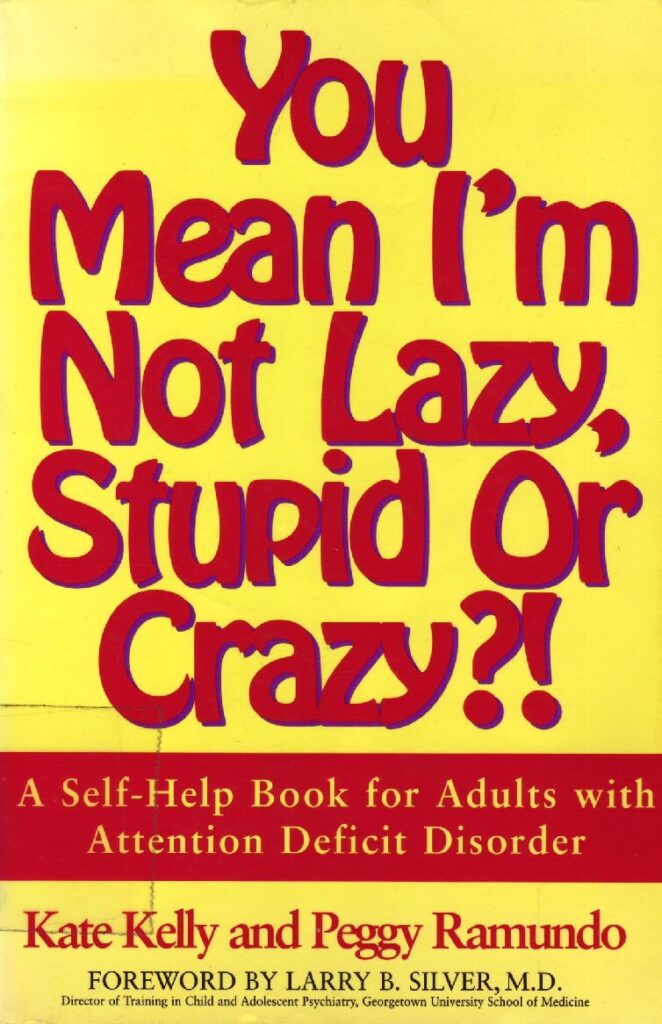summary You Mean I’m Not Lazy Stupid or Crazy
You mean I’m not crazy, lazy, or stupid? is a revolutionary self-help book made just for adults with Attention Deficit Disorder (ADD). This kind guide, written by Kate Kelly and Peggy Ramundo with a foreword by Dr. Larry B. Silver, clears up misconceptions about ADD, validates the struggles of adults who haven’t been diagnosed, and gives useful tips for dealing with symptoms and living a full life.
Main Ideas and Content:
What is adult ADD?
It challenges common misconceptions, such as the belief that ADD is a “childhood disorder” or a moral failing.
It talks about how ADD looks different in adults, often as chronic disorganization, acting on impulse, or problems with controlling emotions.
Accepting and validating yourself:
Normalizes feelings of shame and anger, like, “Why can’t I just get it together?”
It stresses that ADD is a brain disorder, not something that happens because someone is lazy or not smart.
Here are some practical strategies for managing daily life:
Managing your time: breaking tasks down into smaller steps and using visual reminders.
Organizing: Making spaces less cluttered and setting up “ADD-friendly” systems.
Emotional regulation: ways to deal with being sensitive to rejection and acting on impulse.
Relationships and Work:
Talks about how ADD affects relationships, parenting, and work.
Advises on how to talk to people about ADD and ask for accommodations.
Help and Treatment:
Talks about changes to your diet, exercise, and sleep, as well as medication and therapy.
It encourages individuals to establish a support network consisting of coaches, therapists, and other individuals with ADD.
What Makes It Stand Out:
Authors who have ADD themselves wrote it with empathy and humor.
It combines scientific studies with relatable stories and practical tips.
Conclusion: This book is a lifeline for adults who have felt like no one understood them for years. It changes the way people think about ADD from a problem to a difference and gives them the tools to use their strengths (like creativity and hyperfocus) to deal with their problems.
Who Should Read It?
Adults who have just been diagnosed with ADD or ADHD.
People who care about you want to understand ADD behaviors.
Professionals are are looking for resources that are easy for clients to use.
Praise: People have called it “the bible for adults with ADD” because of how it changes lives without making people feel bad about themselves.
